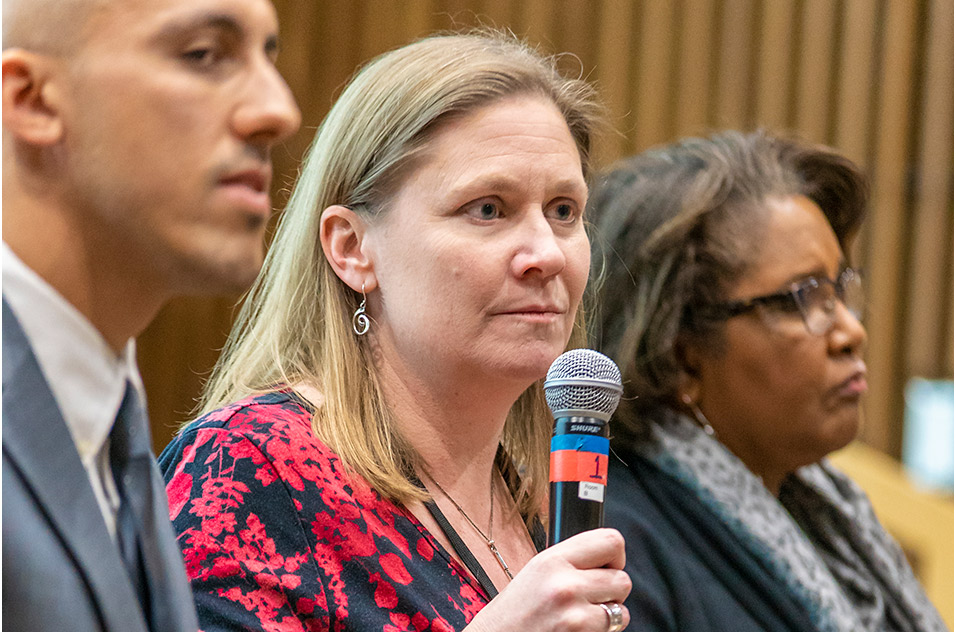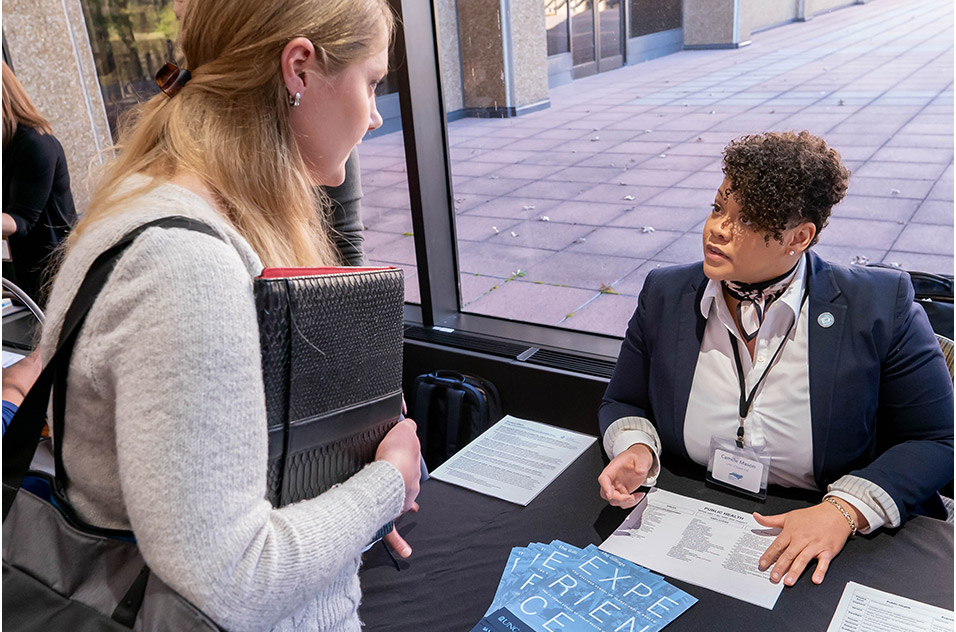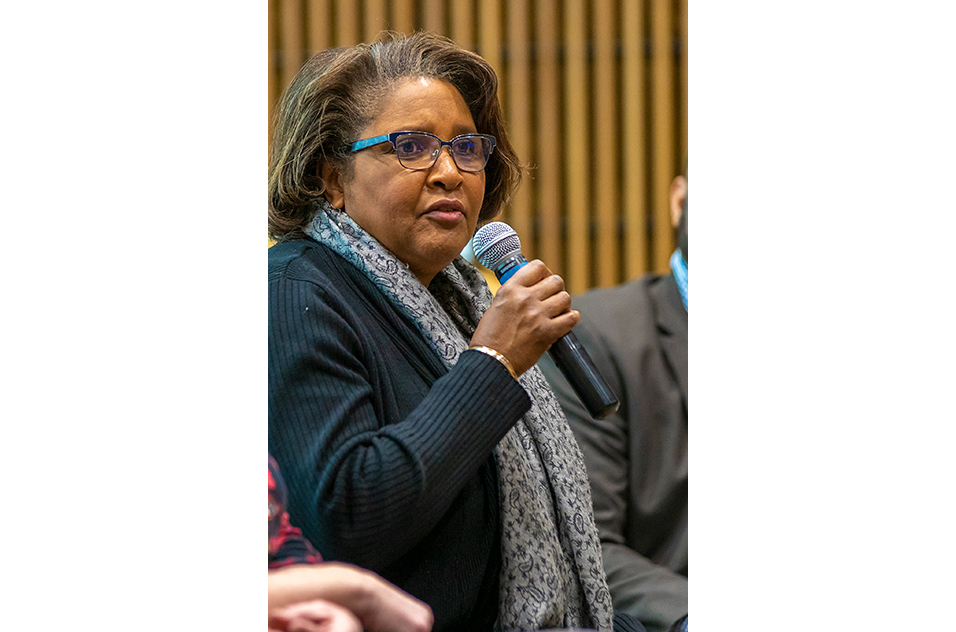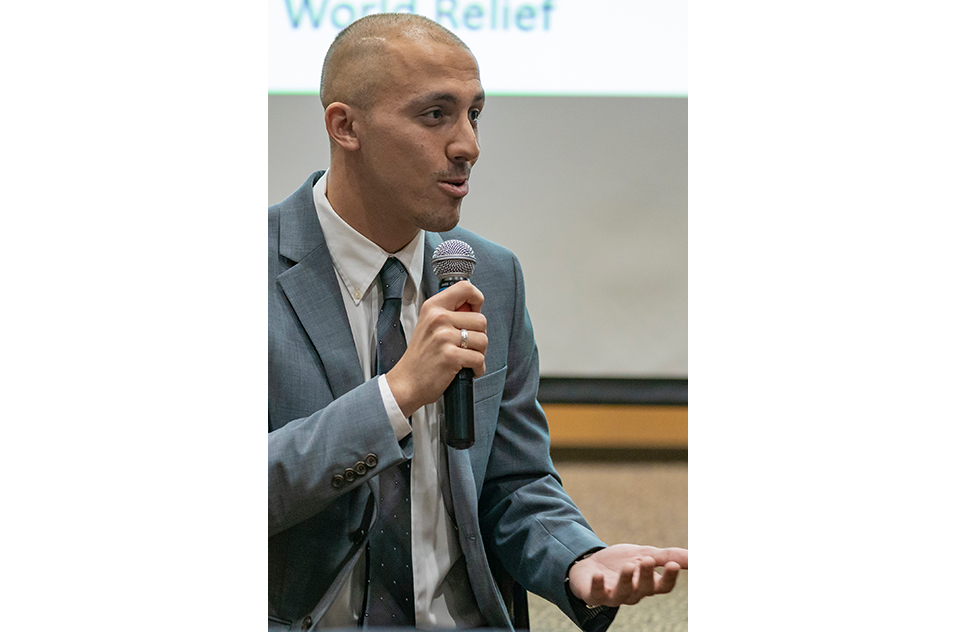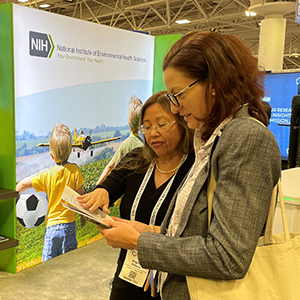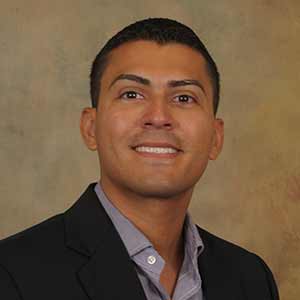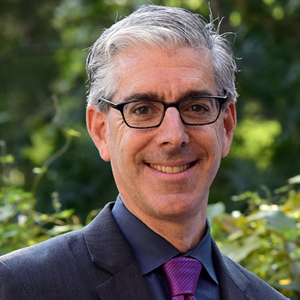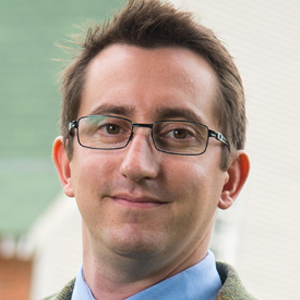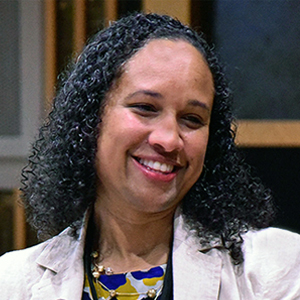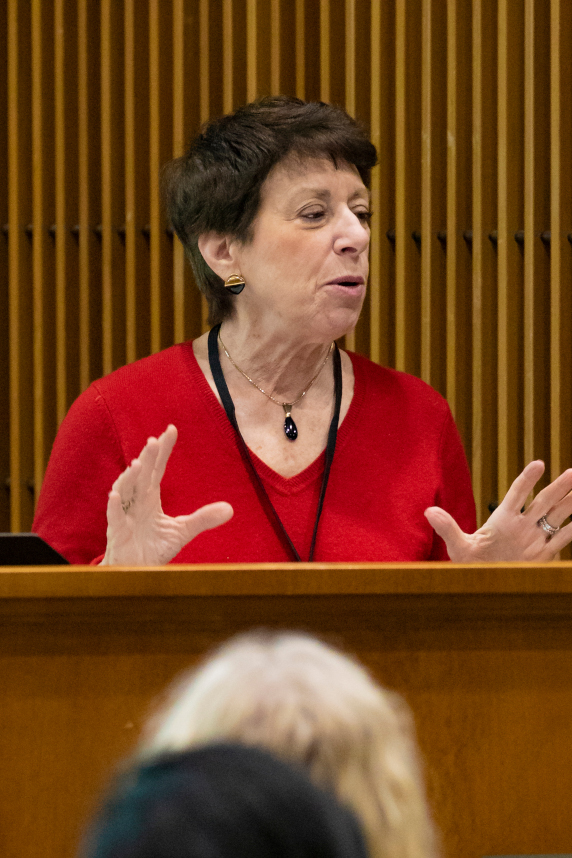 “Our mission is to provide global leadership and innovative research that improves public health by preventing disease and disability,” said Birnbaum. (Photo courtesy of Michael Garske)
“Our mission is to provide global leadership and innovative research that improves public health by preventing disease and disability,” said Birnbaum. (Photo courtesy of Michael Garske)Some 200 students and job seekers met more than a dozen academic, public health, and nonprofit exhibitors Feb. 1 for the third annual Triangle Global Health Consortium (TGHC) Career Day. It was the first time the event was hosted by the Institute.
In her welcoming remarks, NIEHS and National Toxicology Program Director Linda Birnbaum, Ph.D., explained the role of NIEHS in supporting global environmental health through its Global Environmental Health program and grant-funded research.
Birnbaum also offered advice for students heading into science careers. “Strive for balance in your work [and] life,” she said. “That’s something you’ll always be working toward.”
Robust field in North Carolina
TGHC Executive Director Jacob Traverse said one goal of Career Day was to educate and empower young professionals with tools and guidance on how to go after opportunities.
“The global health industry in North Carolina was estimated in 2017 to be worth $3.7 billion a year and represents more than 26,000 direct and indirect jobs,” he said.
Founded in 2009, the nonprofit TGHC coordinates the global health efforts of its 30 members, including universities, government agencies, businesses, and nonprofit organizations in the Research Triangle Park and nearby areas. It is one of only four such groups in the country. Others are located in Seattle, San Francisco, and Atlanta.
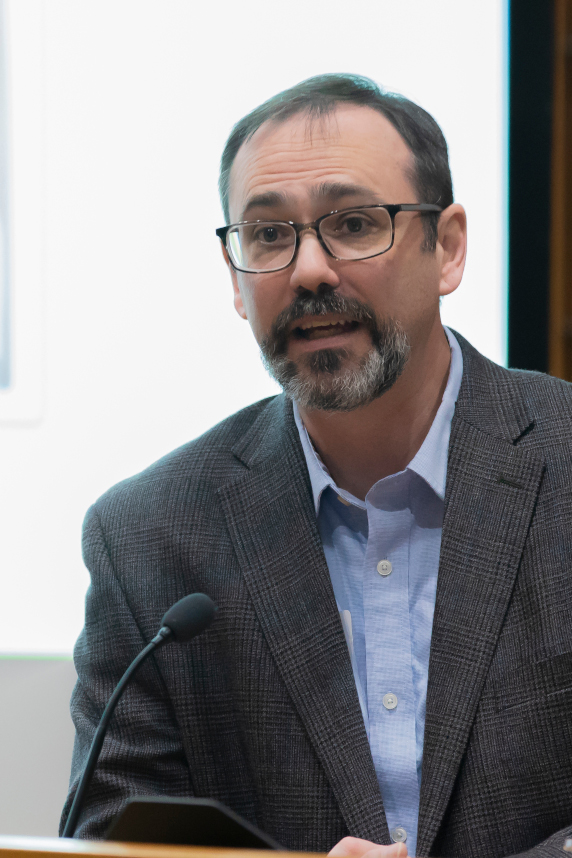 “We support the global health sector, create and reinforce the talent pool, cultivate businesses, and tell the story of North Carolina,” Traverse said of TGHC. (Photo courtesy of Michael Garske)
“We support the global health sector, create and reinforce the talent pool, cultivate businesses, and tell the story of North Carolina,” Traverse said of TGHC. (Photo courtesy of Michael Garske)Global health and NIEHS
Health Science Policy Analyst Kimberly Thigpen Tart, J.D., represents NIEHS to TGHC. “We bring a different perspective to the consortium as the only federal member, and we work to raise awareness of the environment’s role in global health,” she said. “TGHC has really helped us connect to the larger global health community based in North Carolina.”
Potential NIEHS jobs were also on the table, according to Trisha Castranio, an NIEHS program analyst in the Office of the Director, who helped to organize the event. “We can use this event to talk to students who might later come on as postdocs.” She explained that TGHC can offer students and job seekers a lot of options, thanks to its deep and robust membership.
“The members are really excited about being here,” she added. “They are looking forward to sharing their opportunities and finding out what the students have to offer.”
Heather Henry, Ph.D., a program officer in the Division of Extramural Research and Training, volunteers as a TGHC mentor. “The meeting gave me the chance to meet my three mentees, and for them to come to NIEHS and learn about some of the excellent global health organizations in the Triangle,” she said.
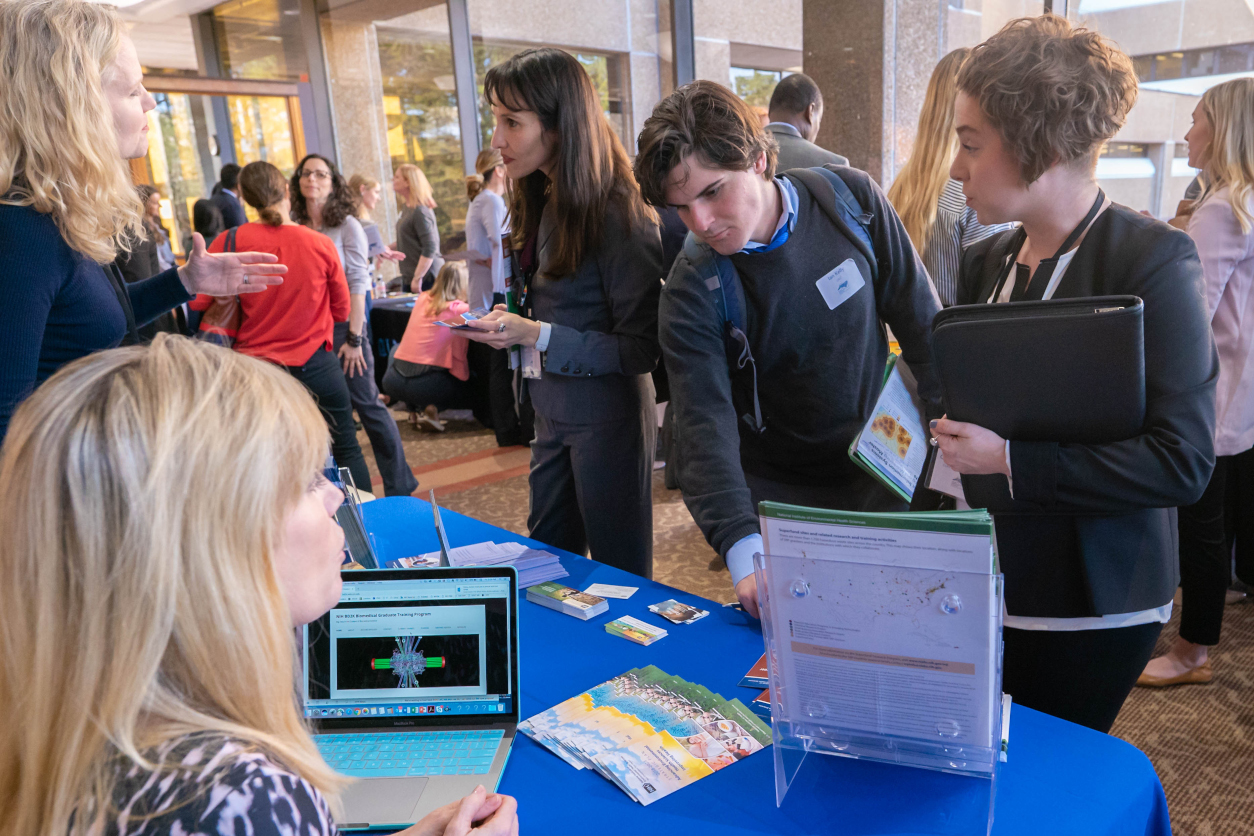 Catranio, top left, and Thigpen Tart, lower left, shared the NIEHS Global Environmental Health program with meeting attendees. (Photo courtesy of Michael Garske)
Catranio, top left, and Thigpen Tart, lower left, shared the NIEHS Global Environmental Health program with meeting attendees. (Photo courtesy of Michael Garske)Meeting of the minds
One of those organizations was RTI International. “This is a great opportunity for us at RTI to look for new talent to further our goal, which is to improve the human condition,” said Aaron Turner, RTI talent acquisitions manager.
Camille Mason is a career services coordinator at the University of North Carolina at Chapel Hill (UNC) Gillings School of Public Health. She explained that she was there to interest students in the program, and to learn more about what the industry is looking for, so that she could pass that information on to UNC’s students.
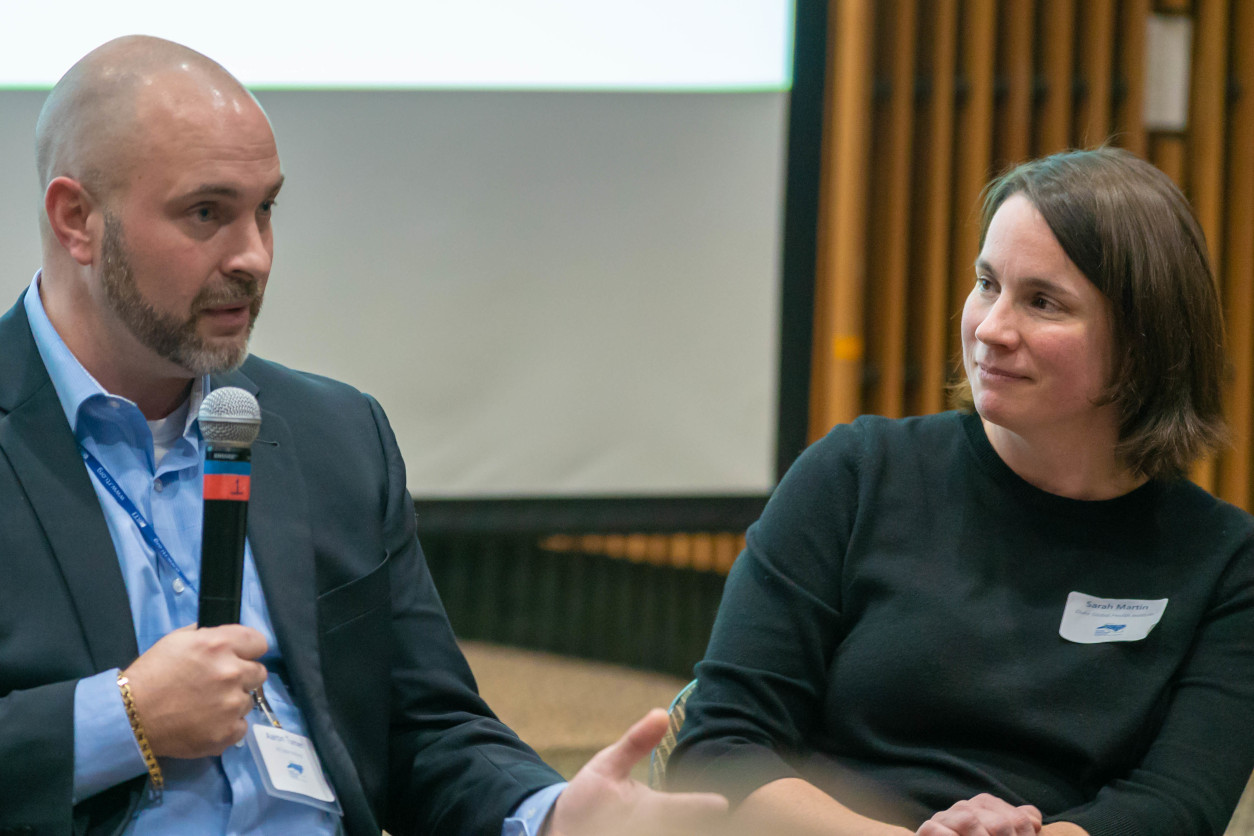 Turner’s RTI is one of the original members of TGHC, as is the Duke University Global Health Institute, represented by panel moderator Sarah Martin, right. (Photo courtesy of Michael Garske)
Turner’s RTI is one of the original members of TGHC, as is the Duke University Global Health Institute, represented by panel moderator Sarah Martin, right. (Photo courtesy of Michael Garske)Advice from panelists
LaHoma Smith Romocki, Ph.D., associate professor of Public Health Education at North Carolina Central University, is a member of the Consortium of Universities for Global Health (CUGH). “We encourage people, students especially, to have a basic set of competencies,” she said. The online Competencies Toolkit that CUGH developed should help students achieve that goal.
Gretchen Van Vliet, senior public health project director at RTI, advised those new to global health to expect the unexpected. “Take advantage of unique opportunities and always look for unexpected paths,” she said. “It isn’t necessary to leave the country to have a career in global health.”
(John Yewell is a contract writer for the NIEHS Office of Communications and Public Liaison.)





